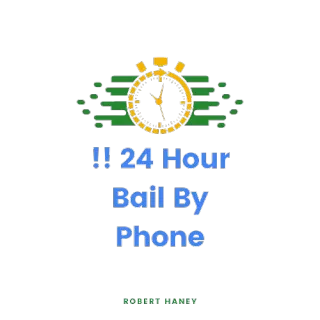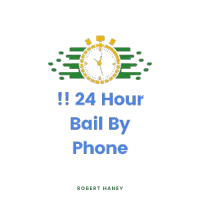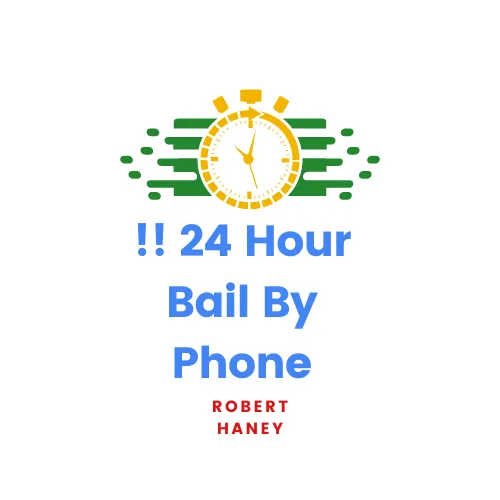24/7 Bail Bonds Volusia
3811 W. International Speedway Blvd
!!24 Hour Bail By Phone - Daytona Beach, FL Blogs
Bail Bonds Blogs
386 256-3101

Common Misconceptions About Bail Bonds
Common Misconceptions and Myths about Bail Bonds
Navigating the bail bond process can be confusing, and there are a lot of misunderstandings out there. This confusion can cause stress and worry for people dealing with legal issues and their families. So, let's clear up some of the biggest myths about bail bonds to help everyone understand what's really going on.
Myth 1: Bail Bonds Are the Same as Bail
Some folks think that "bail" and "bail bonds" mean the same thing, but they're actually different. Bail is the money you pay to get out of jail while waiting for your trial. A bail bond, though, is when you don't have all the money upfront, so you pay a smaller amount to a bail bond agent. They cover the rest for you, but you don't get that smaller amount back.
\Myth 2: Posting Bail Guarantees Freedom
Putting up bail money does get you out of jail for a while, but it's not a free pass. It's a promise that you'll show up for your court dates. If you don't, things get worse. They can take back your bail money, and you could get arrested again.
Myth 3: Bail Bond Agents Work for the Court
Some people think that bail bond agents are part of the court system, but they're actually independent. They're like middlemen who help you pay your bail. They're regulated by the government, but they're not court employees.
Myth 4: Bail Bonds Are Only for Serious Offenses
You might think bail bonds are only for big crimes, but they can be used for all sorts of stuff, from small things like traffic violations to more serious stuff like theft or even assault. It all depends on what the court decides.
Myth 5: Bail Bonds Are Unaffordable for Everyone
Bail can be expensive, but that doesn't mean you're stuck. Bail bond agents can help by only asking for a smaller amount upfront, usually around 10-15% of the total bail. This makes it more manageable for a lot of people.
Understanding these myths can help you make sense of the bail bond process and make better decisions if you or someone you know ever needs to deal with it. If you're ever unsure about anything, it's okay to ask questions and get help from a trusted source, like !!24 Hour Bail By Phone LLC in Daytona Beach, FL.
Frequently Asked Questions
Answers to Common Bail Bonds Questions
How Long Does it Take to Have a Bail Bondsman Post Your Bond?
The time it takes for a bail bondsman to post your bond can vary depending on several factors, including the specific circumstances of your case, the availability of the bondsman, and the jurisdiction where you're being held. In many cases, !!24 Hour Bail By Phone aims to post bonds as quickly as possible, often within a few hours or less of being contacted. However, this can also depend on the complexity of the case and any administrative processes involved. It's advisable to reach out to a bail bondsman as soon as possible after being arrested to initiate the bond posting process promptly. We prioritize a swift release to ensure you're freed as soon as possible.
Bail Bonds Daytona Beach, FL
!!24 Bail By Phone LLC is ready to assist you with all of your bail bond needs. We specialize in "Bail By Phone" service. We understand the urgency to post bond and get your loved one released as quickly as possible!

What is a Bail Bond?
If the arrested individual (or a representative) is unable to cover the bail amount set by the court, they have the option of obtaining a bail bond. A bail bond involves enlisting the services of a bondsman who intervenes by paying the bail on behalf of the arrested individual.
Lorem ipsum dolor sit amet, consectetur adipisicing elit. Autem dolore, alias, numquam enim ab voluptate id quam harum ducimus cupiditate similique quisquam et deserunt, recusandae.
Can a bail bondsman arrest an individual?
Bail Bonds Arrest Authority according to FS 903.20, a surety has the authority to arrest a principal for surrender to official custody either before a forfeiture (as per FS 903.22) or within two years of the forfeiture date (as per FS 903.29).In Florida, bounty hunters are not permitted. Apprehension of bail fugitives is strictly governed by FS 648.30(2)&(3):No one can claim to be a bail enforcement agent, bounty hunter, or similar title in Florida. Only certified law enforcement officers or individuals licensed and appointed according to state regulations are authorized to apprehend, detain, or arrest a principal on a bond, regardless of where it was issued. Violation of this law constitutes a third-class felony under FS 648.30(4).
How long are you obligated to the bail bondsman?
You remain accountable to !! 24 Hour Bail By Phone bail for the duration of your pending court appearances. Once your case is resolved—whether through dismissal, a not guilty verdict, or sentencing—the bond obligation ceases. It's important to note that any court-issued fines, fees, or costs are not the responsibility of the !!24 Bail By Phone. Our primary role is to ensure your appearance at all scheduled court dates. In Florida, a bail bondsman can only arrest you if you fail to appear in court. Should this occur, the judge can declare your bond forfeited, placing the responsibility on us to pay the full bail amount. This incentivizes us to locate and return you to the criminal justice system.
What is a Bail Bond?
If the arrested individual (or a representative) is unable to cover the bail amount set by the court, they have the option of obtaining a bail bond. A bail bond involves enlisting the services of a bondsman who intervenes by paying the bail on behalf of the arrested individual.
What is Bail?
Bail serves as a guarantee in the legal process. It represents the monetary sum set by a court following an arrest. If the arrested individual or someone acting on their behalf pays the bail amount to the court, the individual can be released from custody. However, this doesn't absolve them of the arrest; rather, it allows them to avoid immediate or continued incarceration.

